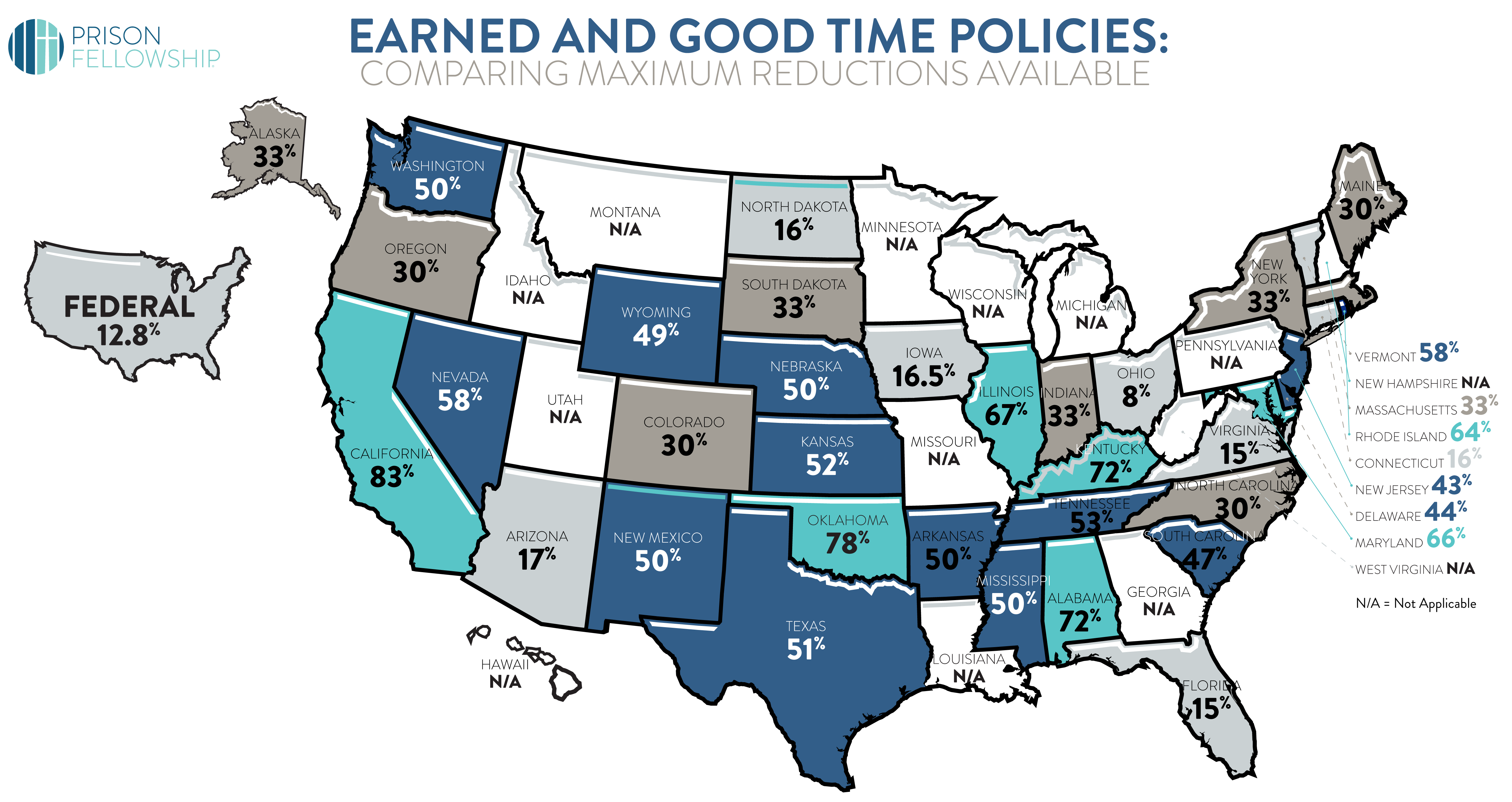In 2012, Missouri established an “earned compliance credits” policy that allows individuals to shorten their time on probation or parole by 30 days for every full calendar month that they comply with the conditions of their sentences.
In an August, 2016, brief released by The Pew Charitable Trusts, “Missouri Policy ShortensProbation and Parole Terms, Protects Public Safety,” the author describes how beginning in 2012, Missouri has allowed probationers or parolees to shorten their sentences through earned discharge, a correctional practice that encourages good behavior among those under community supervision. Three years of data shows that the earned compliance credit policy significantly reduced the state’s supervised population without jeopardizing public safety. More than 36,000 individuals in Missouri shortened their probation and parole sentences by an average 14 months through the law, with those who were discharged more recently earning reductions of nearly two years. Further, the availability of earned compliance credits had no effect on recidivism: Those who earned credits were subsequently convicted of new crimes at the same rate as those discharged from supervision before the policy took effect.
Earned compliance credits are one of a variety of policies that states are adopting to improve the performance of their sentencing and corrections systems. The evaluation demonstrates that such rewards can be a valuable tool to manage correctional populations, while also allowing correctional dollars to be reallocated to programs that are shown to improve public safety.
The article includes an extremely powerful quote, made by the American Probation and Parole Association.
“To be most effective, correctional interventions with individuals involved in the justice system should consist of positive reinforcements that outnumber sanctions or punishments.”
While the Michigan Department of Corrections currently utilizes multiple sanction and punishment policies to discipline incarcerated citizens who make bad decisions, IT FAILS TO OFFER A SINGLE POSITIVE REINFORCEMENT PROGRAM to reward those individuals who make positive decisions.
Michigan Justice Advocacy believes that the above quote whole-heartedly supports our position that the implementation of a Good-Time policy in the Michigan Department of Corrections would: incentivize good behavior, which would create a safer environment for both staff and prisoners; it would promote self-awareness and self-rehabilitation by those who need it the most; it would allow those who are rehabilitated to return to their families sooner, where they could become productive members of society; and it would potentially save the taxpayers hundreds of millions of dollars.



I have a son in Saginaw. The covid thing is a lot worse than you think. My son and his room mate both were positive. They removed room mate and put another prisoner in with my son that was negative. ??? My son has seen others fall right in front of him and die. Guards don’t wear masks. He can’t get his medicine for Addisons half the time and when he does it’s always late.